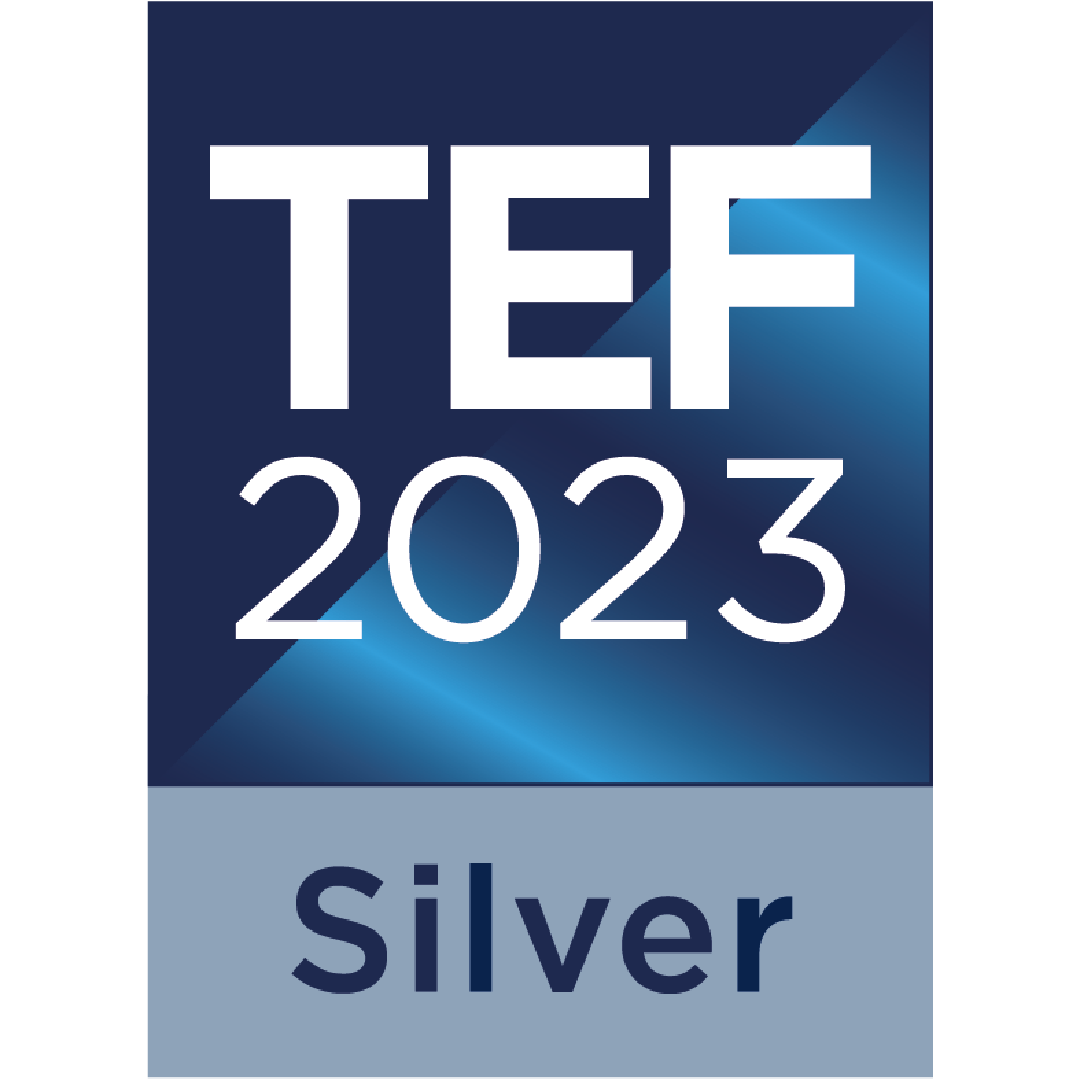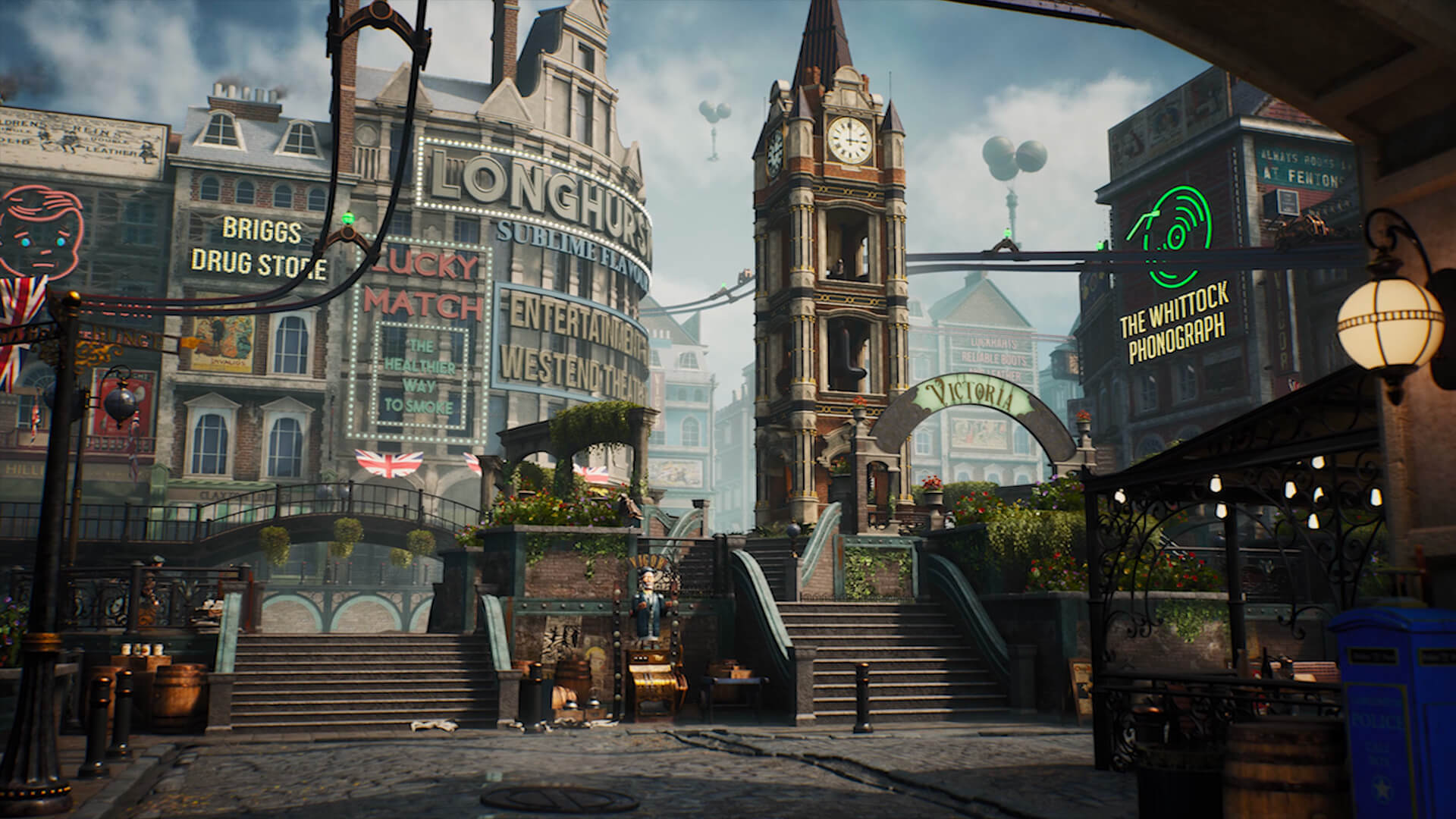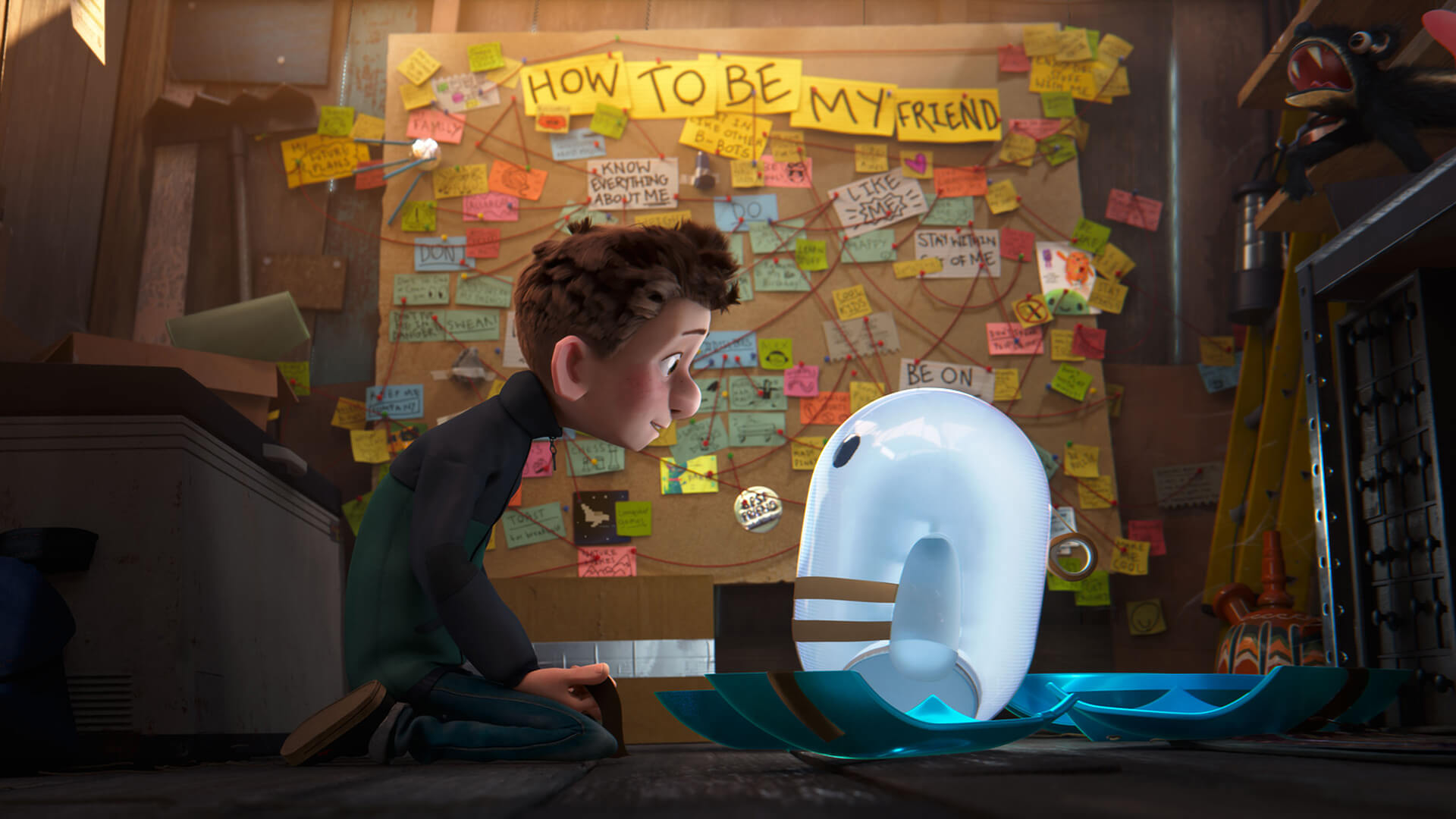BA (Hons)/MArt The Art of Computer Animation (2D)
BA (Hons)/MArt The Art of Computer Animation (2D)
Course details
Location
Start date
September 2025
September 2026
Duration
3 years (BA) / 4 years (MArt)
Mode of study
Full time
2025 fees*
UK students: £9,535 per year
International students: £17,995 per year
*Fees are provisional and subject to change.
Entry requirements
80-120 UCAS points (or equivalent), plus a portfolio
Institution code
P34
UCAS code
I704 (BA) / I705 (MArt)
Awarded by
Course overview
Bring pen strokes and colours to life to tell a story and create emotions!
In recent years, 2D animation has experienced a significant revival, as studios including Blue Zoo, Aardman Animation and Brown Bag Films are creating wonderful films and experiences using the latest tools. The industry demand for more 2D Animators has recently gone through the roof.
This degree, developed with experts from the likes of DNEG and Framestore, and taught by tutors who have worked on films including The Lion King, Who Framed Roger Rabbit and Chicken Run: Dawn of the Nugget, is designed to give you the technical, creative and soft skills that the industry is looking for.
You’ll start building your professional network and will graduate with a killer showreel to help open the doors to your dream studio.
Why choose this course
- Ranked 3rd in the UK - and 8th in Europe in the Animation Career Review’s school ranking.
- We're a Toon Boom Authorised Training Centre, solidifying our position as a leading institution for 2D animation training.
- Based in London - home to some of the best animation studios in the world.
- Industry briefs - work on industry-standard briefs and experience real-life scenarios, just like in a professional studio.
- Successful alumni - you'll join our community of thousands of Escapees, many of whom have gone on to work at some of the world’s top studiosincluding Rare, Rockstar, Ubisoft, DNEG and Framestore. 47 Escapees worked on Avengers: Endgame, 26 on The Mandalorian, 23 on Guardians of the Galaxy: Volume 3 and 16 on Stranger Things.
- Industry-standard facilities - study in a studio environment that mirrors current industry practice, using professional software such as Maya, ToonBoom Harmony and Blender.
- Professional input - our advisory board of experts, from the likes of DNEG (Avengers: Endgame and Oscar-winning Dune) and Cinesite (Iwájú and Thor: Love and Thunder), help develop and keep this degree up to date. You will also receive feedback on some of your work from industry professionals.
- All-round creative skills - study common modules in your first year to gain an understanding of animation, visual effects and game art and how the pipelines cross over.
- Soft skills - learn soft skills such as teamwork, organisation and giving and receiving feedback to prepare you to the real world of work.
- 2D specialism - follow 2D specialist modules, focusing more on traditional drawing skills and how to leverage them with new digital tools. With modules including sketch-visualisation, backgrounds, lighting and shading, concept Art.
- Our student short films have been nominated and won several international awards over the years, including Jerich0 being shortlisted for the Student BAFTA Awards.
Course modules
First year
(Level 4 - 120 credits)
Students on our BA/MArt Animation, Games and Visual Effects degrees study common modules in their first year. This will give you an introduction to the disciplines, pipelines and creative industries, giving you the all-round skills you’ll need on your journey to becoming a professional. You will also have a chance to choose a different specialism if you change your mind before your second year (subject to availability).
- Creative Foundations - Project (30 credits)
- Creative Foundations - Craft (30 credits)
- 3D for VFX - Core (15 credits)
- Video Game Art - Core (15 credits)
- Computer Animation - Core (15 credits)
- Compositing for VFX - Core (15 credits)
Second year
(Level 5 - 120 credits)
You’ll start to focus on 2D computer animation, developing your specialist skills and working in teams on industry-style projects.
- Computer Animation - Advanced (2D) (30 credits)
- Computer Animation - Pro (2D) (30 credits)
- Specialism (15 credits)
- Industry Studio Project (45 credits)
Third year
(Level 6 - 120 credits)
By your third year, you’ll hone your skills and begin to demonstrate the level of knowledge needed to be a professional artist.
- Advanced Specialism (30 credits)
- Professional Practice (30 credits)
- Professional Studio Project (60 credits)
Fourth year - Integrated Masters students only
(Level 7 - 120 credits)
Keen to further refine your skillset, considering working freelance, or one day dream of starting your own studio? As part of a team, you’ll work like a real outsourced studio, each taking on different roles relevant to your expertise. You’ll learn about business, entrepreneurship and the know-how for an impressive portfolio career.
- Creative Research & Development (30 credits)
- Commercial Studio Project (60 credits)
- Business of Innovation (30 credits)
For more details about modules, see the programme and module specifications.
More information
Entry requirements
Minimum academic requirements (September 2025 entry)
- GCSE English at grade 4/C or equivalent
- Have or be predicted a minimum of 80 UCAS points.
Conditional offers are made based on applicant's predicted grades (but we do not set conditions above 120 UCAS points even if your predicted grades are higher than this).
| UCAS points | A Levels | BTEC | UAL Level 3 Extended Diploma | International Baccalaureate (IB) |
|---|---|---|---|---|
| 80-120 | CDD - BBB | MMP - DMM | M | 27-30 |
We are a specialist institution with a flexible approach to admissions, to allow students with creative potential to access our courses. Contact our Admissions Team if you're not sure about your qualifications: admissions@escapestudios.ac.uk / +44 (0) 20 4570 5091.
Academic requirements for international students (non-UK)
We welcome applications from qualified candidates all over the world.
Undergraduate applicants will usually need good high school grades and an undergraduate portfolio.
Head to our international hub for more information. For any questions, reach out to our Admissions Team: admissions@escapestudios.ac.uk
Portfolio submission
Once we receive your UCAS application, you’ll be invited to submit an online portfolio of your work. We take students who have the talent to succeed, and we know the best way to judge this is not necessarily by just a set of academic grades. Our tutors will review your portfolio to determine whether we can offer you a place.
Your portfolio can be submitted to your applicant portal in the form of an online link (e.g. ArtStation, Google Drive, Dropbox etc.). You can also include an optional supporting statement (written, video or audio) to be reviewed with your portfolio.
Check out detailed guidance in our Undergraduate Portfolio Guide.
English language requirements
All our courses are taught in English. If your first language is not English, you may need to complete an English language test, such as a Pearson English language test (PTE Academic) or International English Language Testing System (IELTS) test, to demonstrate you have the language skills needed to complete your degree.
| Qualification | Score required |
|---|---|
| IELTS for UKVI (Academic) | 6.0 IELTS (with a minimum of 6.0 in Reading and Writing and 5.5 in Speaking and Listening) |
| PTE Academic UKVI | 62 including 60 in each subtest |
International students will be required to hold a Secure English Language Test (SELT) at B2 in order to be able to apply for a visa to study at Escape Studios on a student visa. Visit the government website for guidance.
You may be exempt from proving your English level if you are from an English-speaking country listed as recognised for visa purposes or have a degree level qualification obtained in one of these countries. The latest list is available on the UK Government website.
For students who have a SELT at B2 but who do not meet our requirements, we can also consider alternative qualifications. Please contact admissions@escapestudios.ac.uk for more information.
How to apply
UK students
You should submit your application via UCAS. Our institution code is P34 and our institution name is Escape Studios.
- Apply for The Art of Computer Animation (2D) (three year undergraduate degree)
- Apply for The Art of Computer Animation (2D) (four year integrated masters)
International students
International undergraduate applications can be submitted directly using our applicant portal (international students only).
September 2025
- The Art of Computer Animation (2D) (three year undergraduate degree)
- The Art of Computer Animation (2D) (four year integrated masters)
September 2026
- The Art of Computer Animation (2D) (three year undergraduate degree)
- The Art of Computer Animation (2D) (four year integrated masters)
We also accept international applications via UCAS.
If we make you an offer for a place on the programme, you will need to agree to our terms and conditions for your place on the course to be secured.
Take a look at our application and admissions process.
Fees and funding
Fees for 2025 entry*
- UK students: £9,535 per year
- International students: £17,995 per year
*Fees are provisional and subject to change.
For self-funded students, we offer payment plans to divide the cost of tuition in up to three instalments.
Additional costs
In addition to your tuition fee, you will need to budget for your living costs and some other costs associated with your studies.
An additional re-attendance fee of £750 per 15 credit module is charged if you need to repeat a module.
Computers are available for you to work on your projects and coursework during opening hours on campus. It is not, therefore, essential for you to purchase your own computer and software. However, many students prefer to have a computer at home as well, so we have prepared some guidance on the specifications to choose.
At our London campus, you will have access to free printing and photocopying facilities. However, you will have to purchase notebooks and other ordinary stationery items. You may wish to purchase your own copies of recommended textbooks, but please note that all textbooks are available to students in electronic editions.
If you will not live at home, you might need to pay for accommodation. Check out our Accommodation information to find out about your options. You will need to budget for transport costs travelling to your classes and to events, such as industry workshops, which may take place elsewhere in central London. Details of public transport costs are available from Transport for London. There may be occasional and optional opportunities for you to attend an event outside central London, for which you would need to pay the transport costs.
Bursaries
We offer financial assistance including a travel bursary, hardship bursary and laptop loan to ensure that all students can access our learning, no matter their background.
Scholarships
Our industry-sponsored scholarships offer a unique opportunity to be hand-picked by some of the biggest names in the industry, from the likes of DNEG, Cinesite and BAFTA Games.
Visit our admissions page for more information on fees, funding and scholarships.
Assessment
Formative assessment
The majority of modules contain at least one piece of practice or ‘formative’ assessment for which you receive feedback. Formative assessments are developmental and do not count towards your overall module mark.
Summative assessment breakdown
Level 4 and 5
For level 4 and 5 modules, your assessment will be split into two parts:
- 75% product - you will be required to create a product (short computer animation, rendered image of a 3D object composited shot, etc) to a specified brief, then present it in front of a panel and demonstrate how you have met the learning outcomes in your work
- 25% retrospective - you will be required to write a reflective analysis and present it for moderation and assessment.
Level 6
The professional studio project module will be assessed just like level 4 and 5 modules; for the two other modules (advanced specialism, professional practice), 100% of your mark will be based on a self-evaluative portfolio.
Level 7
If you’re doing the four-year MArt programme, you will be required to complete level 7 modules. The assessment of these modules will be split into four parts corresponding to four stages of the project - explore, ideate, accelerate, and incubate. Each stage will be equal to 25% of your final mark.
Progression
In order to progress to the next stage (from first to second year, and from second to third year), you will have to achieve 120 credits at the end of the academic year.
Teaching and learning
Your overall workload will be divided between teaching sessions and independent learning.
During your course, you’ll be able to develop your knowledge and skills in a number of ways. Some learning time will be closely directed and supervised by your tutors, at other times you’ll be free to organise your own study with guidance. All your scheduled studio time, except for some information sessions and presentations, will be in smaller groups based on specialism.
For many of your projects, you’ll work in smaller teams, collaborating to meet a shared brief, with the support and assistance that you need. The craft modules have a higher contact time, as this is where you will learn the knowledge and skills associated with your chosen subject, directed and informed by your tutors’ expertise and experience. These will normally involve a large part of each day in the studio with your tutor and studio assistant, following demonstrations and working on set exercises to help you develop your craft.
The project modules will have a lower contact time, with your tutors taking on the roles of supervisors or studio leads. You’ll meet with them regularly to get feedback and help you stay on the right path, but these modules are much more about you managing the learning experience to meet your objectives. The majority of projects will be team-based, and you’ll have the opportunity to take on different roles in several teams during your studies. Again, you’ll be expected to work in the studios for a significant part of each day, and attendance will be recorded, but outside those times, you’ll be free to organise your work as a team to best suit your project requirements.
Each module has its own area on our Online Learning Environment (OLE) where you will find information about the module and the resources that are provided to support your learning. Some of this information will be dedicated to the module, other elements may be shared across different modules and some may be external assets that can help with your further study. There may be links to videos, online journals and e-books, and you should take advantage of these to enhance your development and take it beyond the studio experience. Tutors may highlight some of these during their sessions. The OLE and our online library also include resources to help you improve your study skills.
Students with additional needs or disabilities are supported by our Student Services Team.
Contact hours
The academic year consists of three terms: Autumn, Spring and Summer. Students on a typical three-year degree attend classes during the Autumn and Spring term, for a total of 30 weeks, and will normally not attend during the Summer term, unless they have to re-attempt assessments.
Per week, your overall workload will be approximately 40 hours. Each week, you will spend 15 hours in workshops and practical classes and 20-25 hours on self-study learning and working on your projects.
For more details about modules, credits and workload, see full programme specifications.
Software
- Maya
- ToonBoom Harmony
- Adobe Animate
- Blender
Career opportunities
You’ll graduate with a degree and a killer portfolio put together with advice from tutors and industry professionals. Ready to apply to your first job in the industry!
Some of the opportunities you can consider once you’ve finished your studies include:
- Junior 2D Animator
- Concept Artist
- Storyboard Artist
- Editorial Assistant for Animation
- Production Assistant
Our students have gone to work as both specialist and generalist artists in the animation industry, including 2D animation for films, TV shows, games and commercials. Read some of our animation Escapee success stories.
Check out our Careers Guide for more information about career opportunities and progression routes.
)
)
)
Meet our industry-experienced tutors
They all have industry experience and are experts in their fields. They are certified trainers for Autodesk Maya. They’ve worked at studios including Walt Disney, DreamWorks and Framestore, on credits including The Lion King, Godzilla and Doctor Strange.
Student showcase
Escape Studios gave me the tools, and the environment that I needed to learn a new skill. I could then take those tools and push on, knowing that I was always going to start from a solid foundation.







